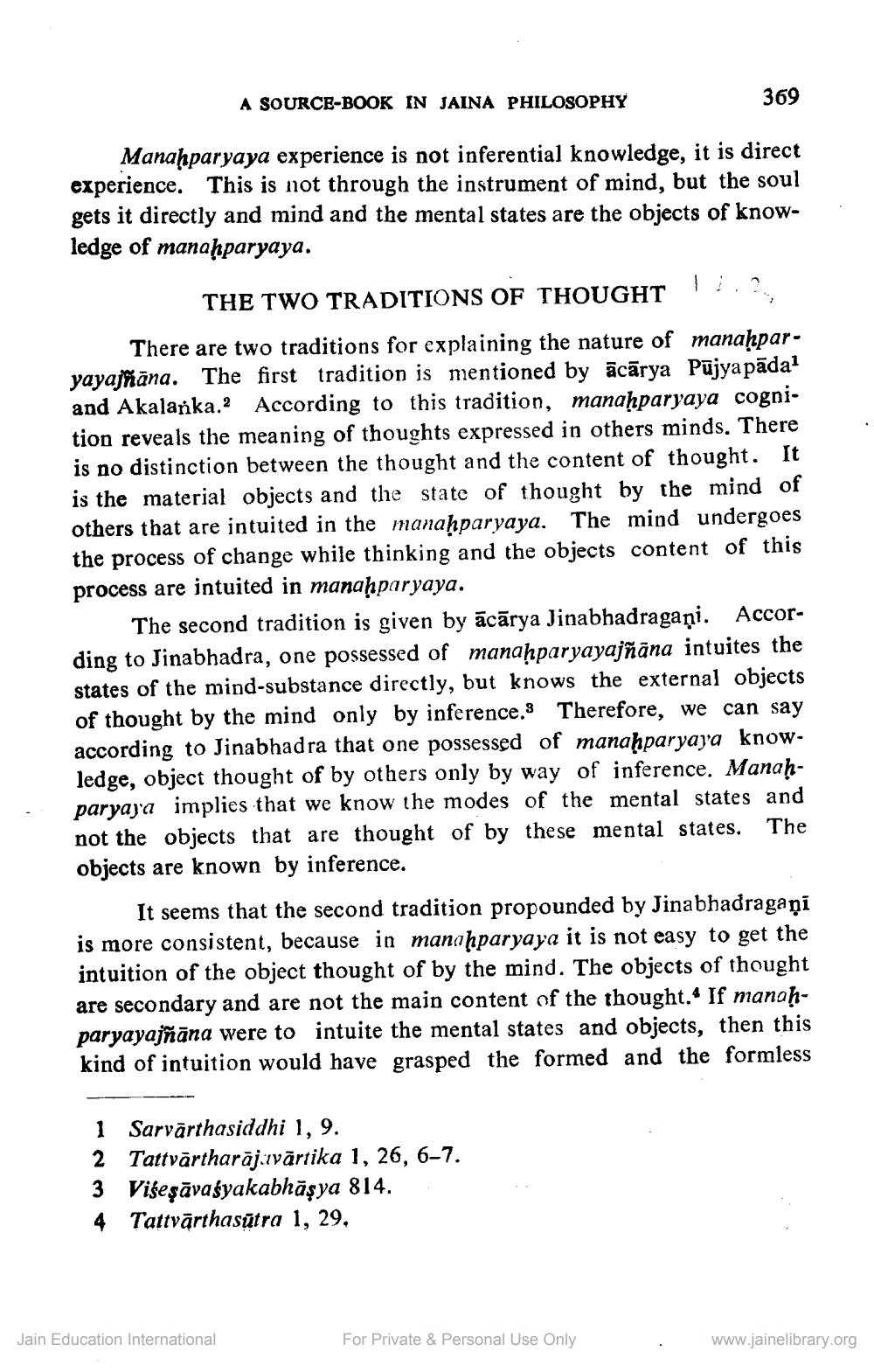________________
A SOURCE-BOOK IN JAINA PHILOSOPHY
Manaḥparyaya experience is not inferential knowledge, it is direct experience. This is not through the instrument of mind, but the soul gets it directly and mind and the mental states are the objects of knowledge of manaḥparyaya.
THE TWO TRADITIONS OF THOUGHT
There are two traditions for explaining the nature of manaḥparyayajñāna. The first tradition is mentioned by ācārya Pujyapāda1 and Akalanka. According to this tradition, manaḥparyaya cognition reveals the meaning of thoughts expressed in others minds. There is no distinction between the thought and the content of thought. It is the material objects and the state of thought by the mind of others that are intuited in the manaḥparyaya. The mind undergoes the process of change while thinking and the objects content of this process are intuited in manaḥparyaya.
369
12.
The second tradition is given by ācārya Jinabhadragani. According to Jinabhadra, one possessed of manaḥparyayajñāna intuites the states of the mind-substance directly, but knows the external objects of thought by the mind only by inference. Therefore, we can say according to Jinabhadra that one possessed of manaḥparyaya knowledge, object thought of by others only by way of inference. Manaḥparyaya implies that we know the modes of the mental states and The not the objects that are thought of by these mental states. objects are known by inference.
1 Sarvārthasiddhi 1, 9.
2 Tattvārtharajavārtika 1, 26, 6-7.
3 Viseṣāvasyakabhāṣya 814.
4 Tattvārthasūtra 1, 29,
Jain Education International
It seems that the second tradition propounded by Jinabhadragaṇī is more consistent, because in manaḥparyaya it is not easy to get the intuition of the object thought of by the mind. The objects of thought are secondary and are not the main content of the thought. If manaḥparyayajñāna were to intuite the mental states and objects, then this kind of intuition would have grasped the formed and the formless
For Private & Personal Use Only
www.jainelibrary.org




